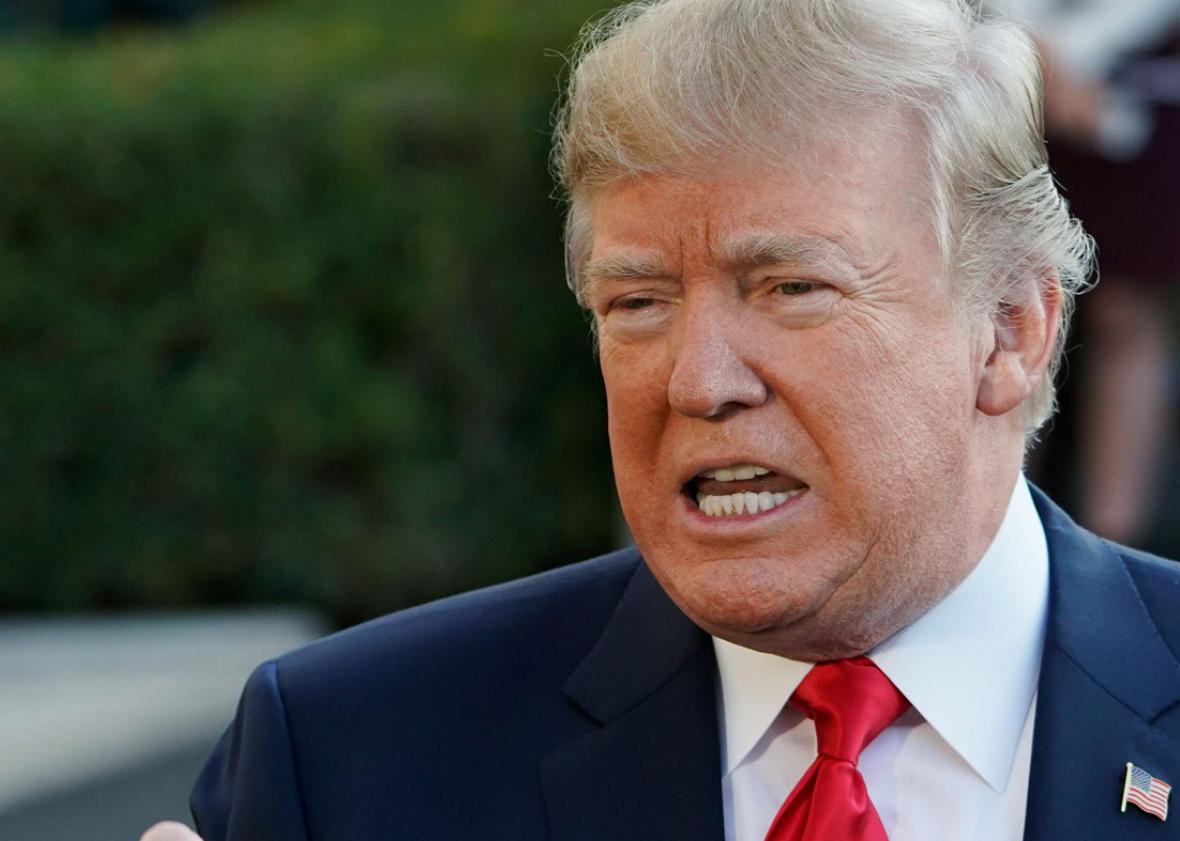President Trump and congressional Republicans are proposing a huge cut in corporate taxes. They say this will help the middle class, not the rich, because companies will use the savings to hire people and raise wages. But at the core of this pitch, there’s a nagging question: If Republicans really want to help the middle class so much, why don’t they just give the money to the middle class? Why do they always give it to the wealthy, or to executives and shareholders, with vague assurances that the money will trickle down?
Economists frame this critique in logical, empirical terms: Tax cuts for shareholders, they point out, are an inefficient way to help workers. But populists put it more sharply. The reason politicians give the money to rich guys, they argue, is that they’re all in cahoots. The rich guys are keeping the money and ripping you off.
The problem for Republicans is that the person most vigorously delivering this rip-off argument lately isn’t Bernie Sanders or Elizabeth Warren. It’s Donald Trump.
Three weeks ago, during the debate over health care, Trump derided corporate subsidies. The government was sending money to insurance companies with explicit instructions to spend it on policyholders. Trump said we shouldn’t trust the companies. He said they were using the money to boost their stock prices and line their pockets.
On Oct. 12, the White House announced that Trump would end “cost-sharing reduction” payments to insurers, which subsidize health care coverage for low-income policyholders under Obamacare. The next day, Trump dismissed the payments as “a subsidy to the insurance company. That’s not going to people; that’s making the insurance companies rich. … That money is going to insurance companies to lift up their stock price, and that’s not what I’m about.”
Four days later, at a Cabinet meeting, Trump bragged: “I knocked out the CSRs. That was a subsidy to the insurance companies. … Just take a look at their stocks. … I want the money to go to people that need proper health care, not to insurance companies.” On Oct. 17, Trump charged that CSR payments went “to the insurance companies to line their pockets, to raise up their stock prices.” On Oct. 18, he accused insurers of using the payments to inflate their stock prices while “the people that need Obamacare are decimated.”
Trump was wrong about CSRs. The government, in its instructions to insurers, stipulates that they “are required to notify the Secretary of Health and Human Services of cost-sharing reductions provided on behalf of eligible enrollees.” Insurers “must report the amount they paid for each eligible medical claim, the amount enrollees paid for the claims, and the amount of cost-sharing that would have been paid for the same services under the corresponding standard plan.” If insurers don’t document the health care costs that are being covered, they don’t get paid.
That’s why, according to the Congressional Budget Office, premiums will go up if the CSR payments end. Thanks to careful oversight, the money is going to people who need it. CBO estimates that a CSR cutoff would raise rates on many affected plans by 25 percent.
So it’s not true that corporate executives are using CSR payments to line their pockets. Under the Affordable Care Act, that would be illegal. But the GOP’s corporate tax cuts have no such safeguards. It’s perfectly legal for executives to pass the money to their shareholders and, through stock buybacks, to themselves. The bill does encourage companies to buy equipment, by allowing them to write off the cost in a single year. But it provides no incentives to spend money directly on employees.
Despite this, Trump swears that corporate tax cuts will go to workers. “We want tax cuts for businesses to produce jobs,” he told reporters on Oct. 25. A week later, he declared: “It’s a tax bill for business, which is going to create the jobs.” At a meeting with congressional Republicans on Thursday, he boasted: “We’ll slash the corporate rate from 35 percent to no more than 20 percent. …What that’s going to do is create tremendous success for companies and jobs. It’s about jobs.” Republicans named their bill the “Tax Cuts and Jobs Act,” and their talking points didn’t speak of companies or corporations. Instead, they systematically substituted the phrase “job creators.”
It’s true that if companies get to keep more of their profits, they’ll have more to spend on raises and hires. But is that where they’ll put the money? Four decades of tax cuts and tax hikes show no correlation between lower taxes on the rich and economic gains for workers. Nor is there any reliable correlation between corporate tax cuts and wages. Corporations that have lowered their taxes through shelters and deductions don’t spend the savings on employees. They use it to buy back their own stock, boosting its price and increasing executive compensation.
You can argue that corporate tax cuts, granted without supervision, will be used to boost employment and wages, not stock prices. Alternatively, you can argue that corporate executives will divert subsidies to inflate their stock prices, even when the government requires documentation that the subsidies are going to low-income people. But you can’t honestly believe both of these things. The evidence suggests that Trump is wrong about tax cuts and wrong about CSR payments. But his reversal tells us he’s more than wrong. He’s lying.
